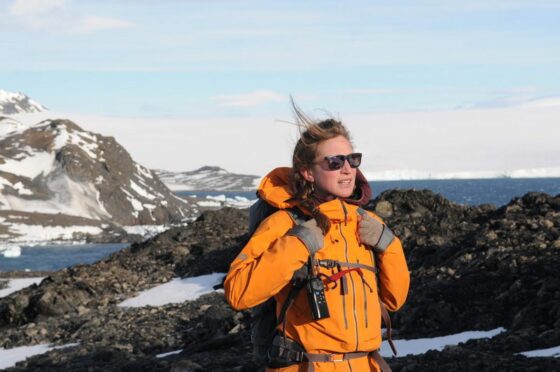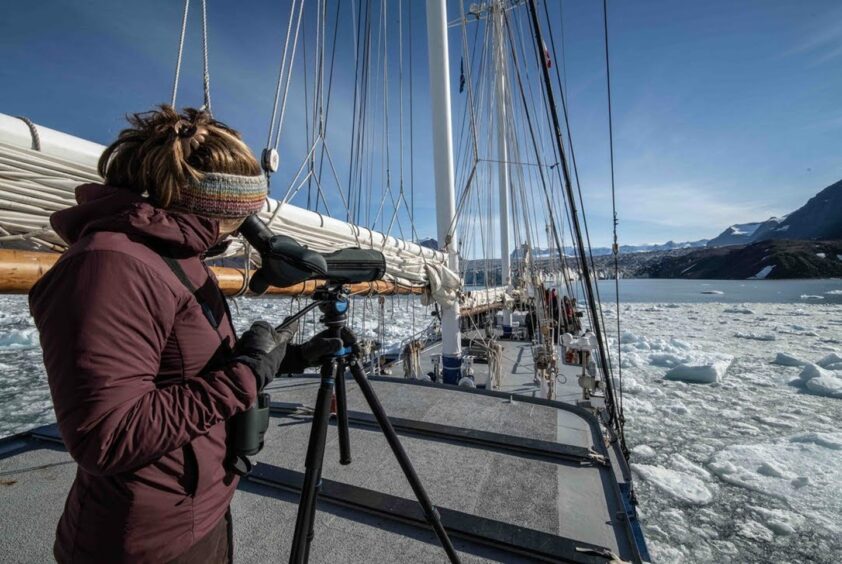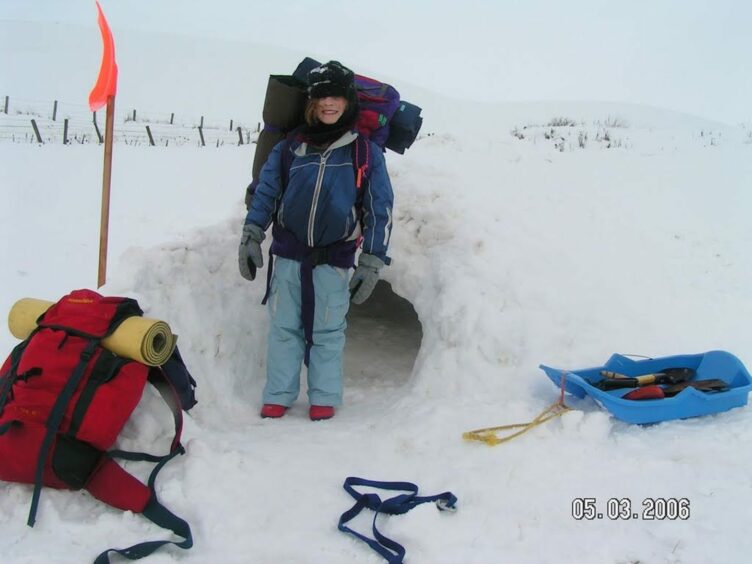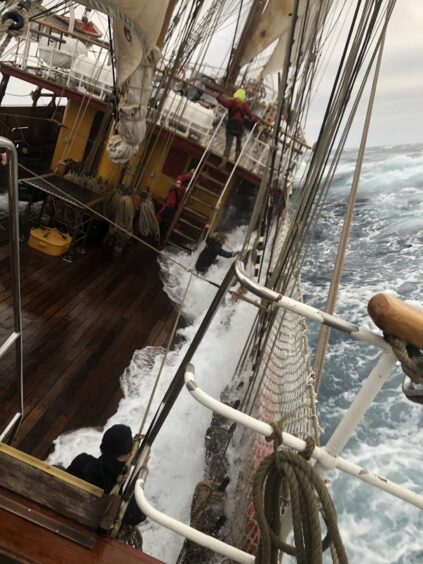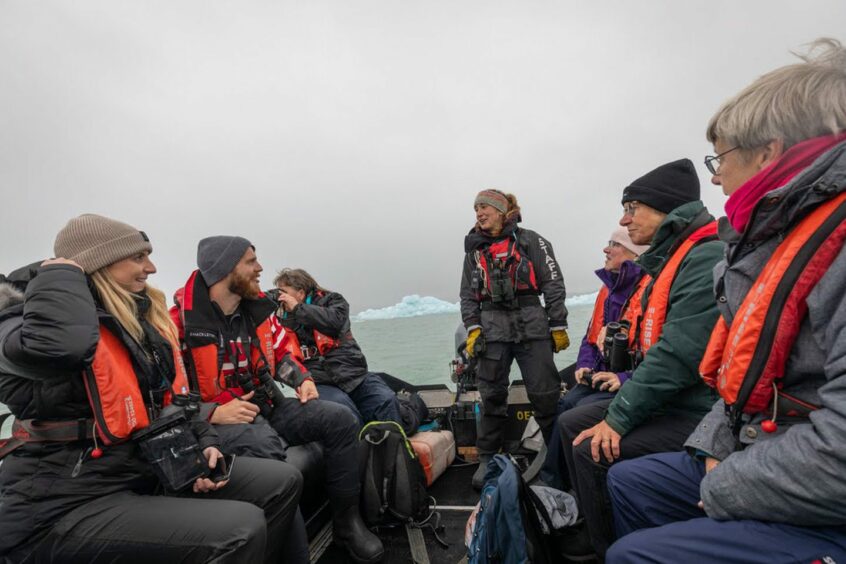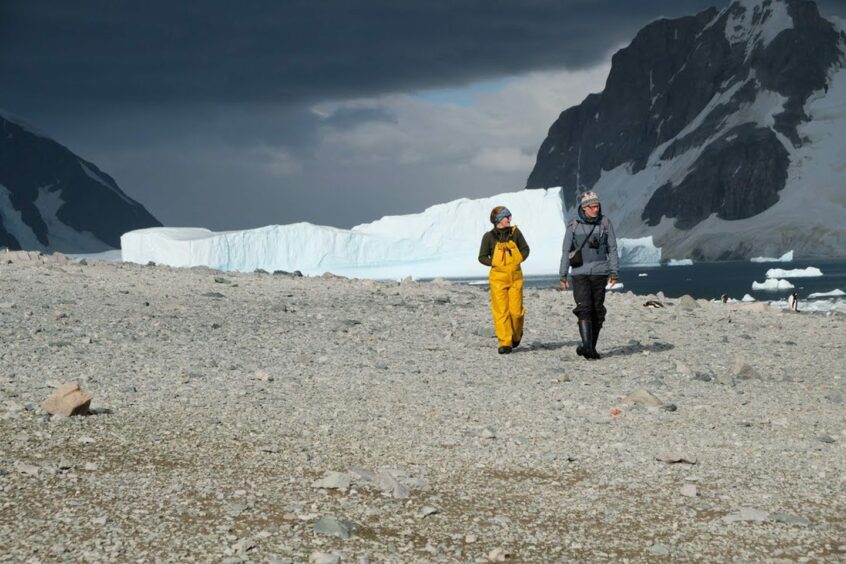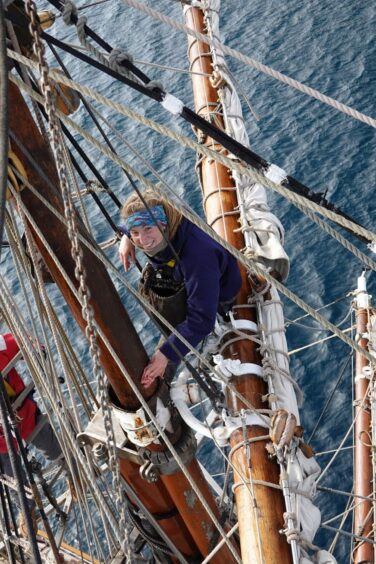At just 26 years old, Beth Hitchcock has explored the Antarctic peninsula, watched humpback whales feed and sailed the Drake Passage – a notoriously rough stretch of water between South America and the South Shetland Islands.
Her adventures are all the more impressive considering that she still occasionally suffers from sea sickness, but the former Ellon Academy pupil has dedicated herself to educating passengers on one of the most incredible places on earth.
Having grown up in Collieston, it should come as no surprise that Beth was drawn to life at sea – with a magical childhood spent exploring the Aberdeenshire coastline.
The fishing industry might seem the obvious choice, but Beth now spends months apart from her close knit family thanks to her job as a polar expedition guide.
Bar a few trips home, Beth who is now based at Farr near Inverness, has been setting sail since 2018.
As the north-east buckles down for winter, she embarks on the voyage to Antarctica during its summer months as it would otherwise be inaccessible due to ice.
Ahead of the Tall Ship races returning to Aberdeen in 2025, we found out what life is like on board a tall ship and the challenges along the way.
Inspired by former fishing village
Beth can be found sailing around the Antarctic Peninsula on board the historic Bark Europa, but she also works for Oceanwide Expeditions in order to explore locations such as Svalbard and Northeast Greenland.
She grew up sailing from a young age, and has adored life on board ever since.
“I never thought sailing would become a career; I grew up sailing in Peterhead and I was also lucky as my parents had a boat that we’d take out around Collieston,” said Beth.
“I studied geology at Glasgow University, and during my summers I volunteered on a ship called The Lord Nelson.
“I remember seeing Bark Europa and thinking, I want to work on her.
“She’s a beautiful ship, very well maintained and everything is done traditionally such as rope work.
“In 2018 I came on board and sailed to the Netherlands, then re-joined the ship a little later in Argentina.”
Choppy adventure
Far from being an easy voyage, Beth and the crew had to navigate the Drake Passage, which is considered one of the most treacherous voyages a ship can embark upon.
The passage can take up to five days to conquer, and is a bucket list item for many an explorer.
Indeed, Charles Darwin made the journey on board HMS Beagle during his travels around the world.
“It’s an amazing experience, but I can actually get very seasick,” said Beth.
“You feel like you have to earn Antarctica.
“We arrive in what’s called the South Shetland islands, so named because a lot of Scottish explorers visited in the past.”
Passengers can pay an eye watering amount for the voyage, and it is Beth’s job to introduce the landscape and wildlife.
“The old whaling stations offer a glimpse into history, it’s an amazing landscape to look at,” she said.
“I think I love it so much because it’s one of the few landscapes you can look upon where nothing has been altered.
“There’s nothing human in it.
“I’ve only been during the summer months when penguins are rearing chicks and humpback whales are feeding.
“There is no winter tourism as everything freezes over.”
Impact of climate change
Beth considers herself to be a newbie in comparison to some colleagues, who have been making the voyage for more than 20 years.
“I work with people who have been going for 23 years, and they’ve seen the impact of climate change,” she said.
“Seasonal variations make it difficult to pinpoint, but there’s certainly been glacial retreat.”
Beth’s job may enable her to see the world, but it’s not all plain sailing.
She can share a cabin with up to six people, and works on a watch rotation.
“We share one toilet and one shower, you don’t get any space to yourself,” she said.
“It’s hard to do your own thing, and you’ll be on watch for six hours before swapping over.
“Night watches in particular can be very special though.
“You go for a coffee break, lie on the deck and look at the stars.
“You can find yourself chatting about anything in the world; there’s not usually internet and you meet people from so many different backgrounds.”
Time apart from family
A life of discovery is not for everyone however, and Beth can spend several months apart from family and friends, with limited means of getting in contact.
Despite the challenges, she wouldn’t change the voyage of a lifetime.
“I can spend three months at a time away from home, it can be hard to get the balance right,” said Beth.
“You kind of escape from reality, and you become so close with your team.
“You’re working with your watch every waking hour, and I love working outdoors.
“There’s also the aspect of science, I’m always learning new things about the places we visit.
“Having sailed in many parts of the world, the west coast of Scotland is still one of the best places in the world to explore by sailing boat and there are so many opportunities for young people to work on board.”
